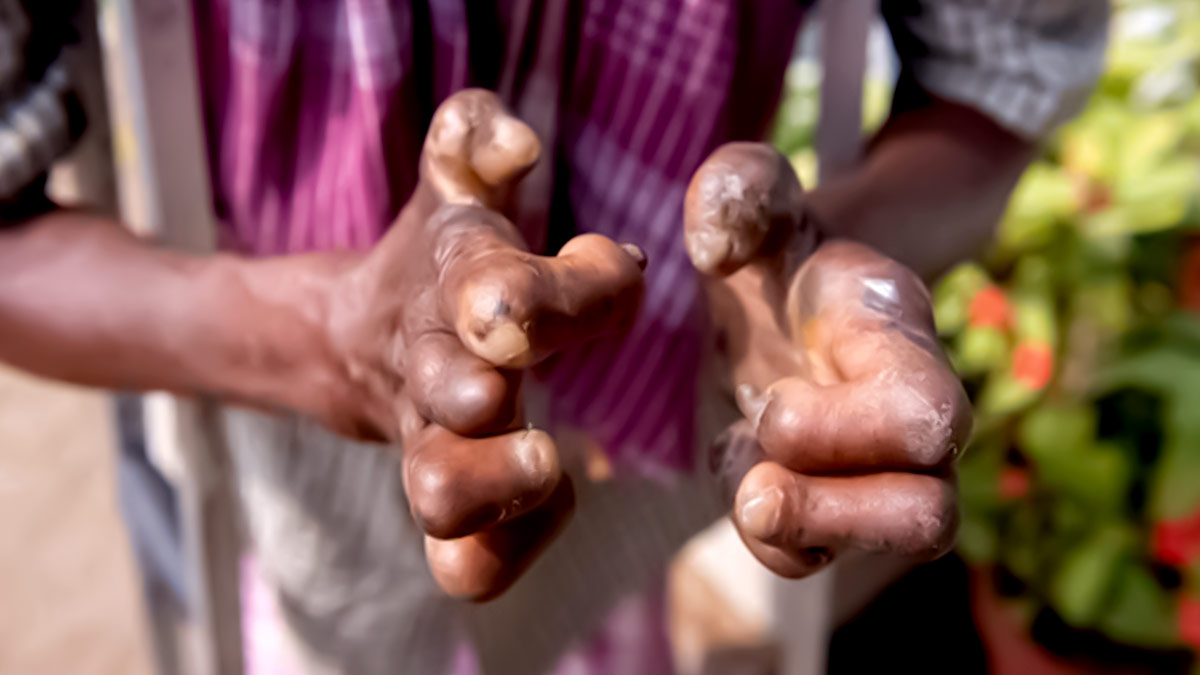
Leprosy, also known as Hansen's disease, has been a feared and misunderstood condition for centuries. Historically, it was associated with social stigma and isolation, significant medical advancements and public health efforts enabled its near eradication. Unfortunately, this ancient disease is once again on the rise.
The Centre for Disease Control and Prevention recently informed, ‘Florida, USA, has witnessed an increased incidence of leprosy cases lacking traditional risk factors. Those trends, in addition to decreasing diagnoses in foreign-born persons, contribute to rising evidence that leprosy has become endemic in the southeastern United States.’
Leprosy Making a Comeback

Leprosy is a chronic infectious disease that primarily affects the skin, peripheral nerves, mucous membranes, and the eyes. Leprosy is characterized by skin lesions, disfigurement, and nerve damage. It is not as highly contagious as once believed, and the majority of people are naturally immune to the disease in present times. However, its comeback has revealed significant gaps in the public healthcare system.
Also Read: Leprosy in India: ‘Eliminated’ in 2005 But Continues to Grip The Country Due to Ignorance
Speaking with the team of OnlyMyHealth, Dr Manjusha Agarwal, senior Consultant- Internal Medicine, Global Hospitals, Parel, Mumbai, said, “The leprosy cases are resurfacing as there is still limited understanding and societal prejudice among people about this disease. It is essential to address myths related to this disease that are preventing people from understanding the disease in a better way. This is what stops them from exercising appropriate precautions, and hence the disease making a comeback. COVID has also lowered the immunity of the masses and allowed for a lot of diseases to emerge again.”
How To Prevent Leprosy?
Dr Manjusha shared several measures that can be taken by the general public to protect themselves against leprosy:
Early Diagnosis
Early diagnosis and treatment are crucial. If you notice any symptoms, such as suspicious skin patches or loss of sensation in certain areas of the body, consult a healthcare provider promptly. Early diagnosis and treatment not only prevent further transmission but also minimise potential complications associated with untreated leprosy.
Personal Hygiene
Practice good personal hygiene. This includes washing your hands regularly with soap and water, especially before eating or touching the face, and maintaining clean living conditions.
Avoid Close Contact
Limit close physical contact with someone diagnosed with untreated leprosy until they have completed their treatment. Leprosy primarily spreads through respiratory droplets from an infected person when they cough or sneeze. Therefore, maintaining a safe distance from someone with active leprosy can help reduce the risk of transmission.
Modern Treatments Of Leprosy

Modern medicine offers effective treatments for leprosy. The primary treatment is multidrug therapy (MDT), which typically involves a combination of antibiotics. These drugs help kill the bacteria responsible for leprosy.
Also Read: Leprosy Day 2020: Bust The Myths, Learn The Facts About Leprosy
The treatment duration can range from a few months to a few years, depending on the type and severity of leprosy. It's crucial to complete the entire course of treatment to prevent relapse and the development of antibiotic resistance.
Leprosy: A Potential Global Health Challenge?
Taking COVID as a lesson, the comeback of Leprosy during these trying times for public health is a cause for concern. Although the stigma around leprosy is not as prevalent as was in the 20th century, the comeback of this disease highlights lapses in its global prevention and eradication efforts.
Early diagnosis, adherence to treatment plans, and community support are crucial in the ongoing efforts to combat leprosy and pull it back down to near eradication. By following the preventive measures against leprosy diligently, individuals can effectively safeguard themselves against this infectious disease while contributing to its global control and elimination efforts.







